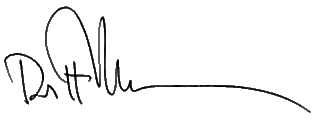|
Dear Readers,
This issue covers, as is often the case in J.UCS (except if we have
special issues) quite a range of topics. I am sure that some of them
will be of interest to you.
Today, I want to use this column to point out once more two very
important facets of J.UCS:
First, J.UCS is now following a free access policy and will continue
to do so in the next years. This means that all publications are
available to all free of charge, including all backruns. However, the
copyright for the articles remains with J.UCS, i.e. using papers as
parts of thesis or anthologies or such is only possible after
obtaining permission from J.UCS.
Observe also that J.UCS is indexed, among other services, by the
science citation index, hence papers published in J.UCS have a
potentially very large audience. The current impact factor is 0.34. We
expect that due to the open access policy now this impact factor will
in effect rise. We advise you to use J.UCS for your best papers:
turn-around time is relatively short (not longer than with conference
papers, usually below 6 months), all papers are reviewed by 3
independent referees, guaranteeing quality. The PDF file of the paper
can be printed out and looks exactly like a reprint from a printed
journal. And J.UCS is indeed also a printed journal: at the end of the
year the papers are printed in yearly volumes and are available (for
charge) for public or private libraries.
Second, note that in J.UCS, any paper can be commented on. This has
two major advantages: readers may point out related papers,
improvements, corrections, etc. Authors may use this to point to more
recent publications they or others have written on the topic since the
paper was published in J.UCS. Consider for example the early paper on
digital libraries that Jennifer Lennon and I wrote back in 1995: http://www.jucs.org/jucs_1_11/digital_libraries_as_learning. If
you read the comments there, you will be lead to much more recent
papers that may be of interest. We call this "Links into the
Future". Observe that the links in the comment field are clickable and
open a new window: by closing it you are back to where you started.
Any comment written on a paper is communicated to the author of the
article by email. This combination of features can lead to excellent
interactions between users of J.UCS but does require that you inform
us of changes in your email address. By the way, since you cannot
modify your paper, a change of email address (since the 'old' email
address appears in the heading of your paper) is something you should
put into a comment! This automatically means that we are also informed
of the change and can adjust our data bases, so you obtain comments
written by others in the future.
I encourage you to make use of this feature. It is very much in line
with "Web 2.0" philosophy to enrich material by contributions of the
community and makes, we hope, J.UCS one of the most attractive
combined electronic/printed journals. And - we have more surprises
coming up!
Cordially,
Hermann Maurer

Hermann Maurer, Managing Editor
Graz University of Technology, Graz / Austria
email: hmaurer@iicm.edu
|